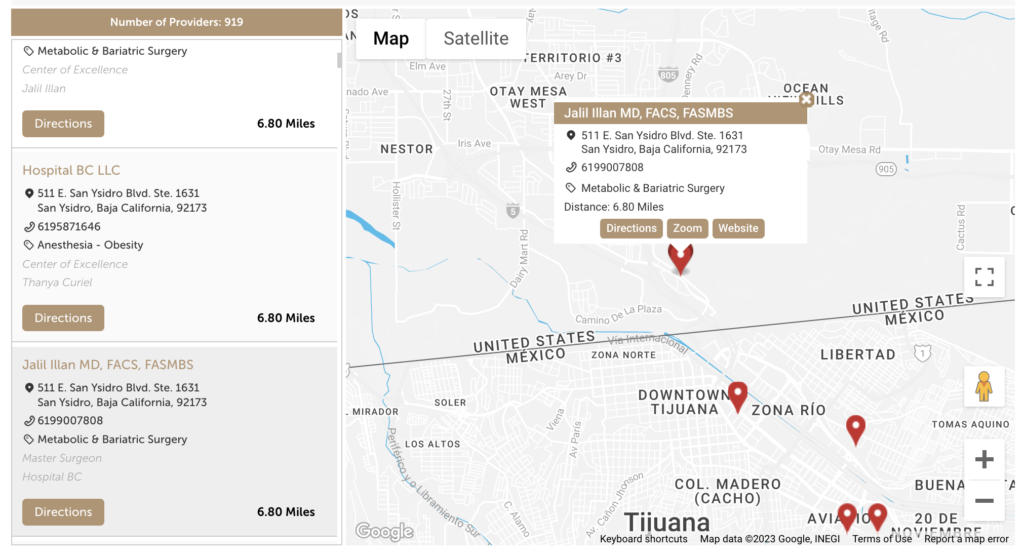Obesity can lead to many health problems, including heart disease, stroke, and diabetes. One of the less well-known consequences of obesity is dementia. Studies have shown that there is a link between obesity and dementia. There is a higher risk of dementia in older English individuals who are overweight or obese.
Bariatric surgery can help to address both obesity and dementia.
Health Problems Caused by Obesity
1) Joint Pain
When you’re carrying around extra weight, it puts added pressure on your joints. This can lead to pain and inflammation, particularly in the hips, knees, and ankles.
For example, osteoarthritis, the most common type of arthritis, is caused by the breakdown of cartilage in joints. This can be exacerbated by carrying extra weight, which is why obese people are more likely to develop osteoarthritis. If you’re struggling with joint pain, bariatric surgery in Tijuana, Mexico can help. You can take pressure off your joints and reduce inflammation by losing weight.
Read more: Effects of Obesity on Bones & Joint Pain
2) Difficulty in Breathing and Sleeping
If you are obese, you may have sleep apnea when you stop breathing for short periods during the night. This can happen because excess fat tissue in the neck can block your airway. Sleep apnea disrupts sleep and can lead to daytime fatigue, irritability, and difficulty concentrating. It is also a risk factor for heart disease and stroke.
After a weight loss surgery, your airway often becomes less obstructed, and you may find breathing and sleeping easier.
3) Dementia
Dementia is a broad category of brain diseases that cause a long-term and often gradual decrease in the ability to think and remember. This includes Alzheimer’s disease, the most common form of dementia.
Dementia affects more than 47 million people worldwide, which is expected to increase.
Symptoms of Dementia
1) Memory loss
One of the most common and early symptoms of dementia is memory loss. This can manifest as forgetting recent events, conversations, or appointments.
Bariatric surgery can help improve this symptom by increasing the levels of BDNF. BDNF is a protein that helps with neuron growth and survival and is lower in those with Alzheimer’s disease.
2) Difficulty communicating or speaking
Obesity can lead to physical problems in the mouth and throat, which make it hard to speak clearly. In addition, obesity can also cause sleep apnea, which can further impair communication.
Bariatric surgeries can help improve these problems by helping patients lose weight and correcting any anatomical abnormalities in the mouth or throat.
3) Difficulty with basic tasks or motor skills
Some tasks like bathing, dressing, and grooming become difficult. You may have trouble with coordination and balance. You may shuffle when you walk or freeze in place.
If you’re having trouble with basic tasks or motor skills, bariatric surgery can help. After surgery, you’ll likely see an improvement in your ability to perform these activities.
For example, you may be able to take a shower without help. You may be able to dress and tie your shoes. You may even be able to walk without a cane or walker.
What Makes Bariatric Surgery the Best Choice for Dementia?
Obesity is a significant risk factor for dementia, and bariatric surgery can help to reduce this risk.
Studies have found that obese individuals who underwent bariatric surgery had a significantly lower risk of developing dementia than those who did not have surgery. This was especially true for those who had surgery at a younger age.
Obesity leads to inflammation and insulin resistance, which can damage the brain. Inflammation may cause the buildup of plaques, a hallmark of Alzheimer’s disease.
Bariatric surgery can help to reduce inflammation and improve insulin sensitivity, which may help to protect the brain from damage.
For gastric bypass in Tijuana, Dr. Jalil is the best bariatric surgeon. He has completed over a thousand cases, with patients coming worldwide to receive his care. Contact us for more information.







